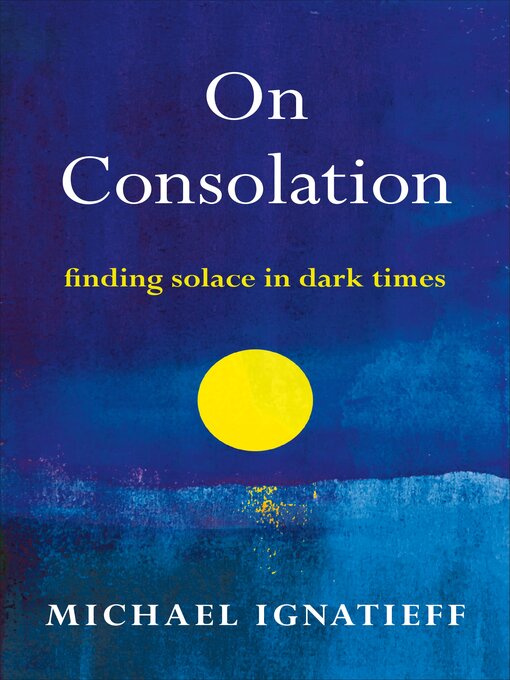Timely and profound philosophical meditations on how great figures in history, literature, music, and art searched for solace while facing tragedies and crises, from the internationally renowned historian of ideas and Booker Prize finalist Michael Ignatieff
When we lose someone we love, when we suffer loss or defeat, when catastrophe strikes—war, famine, pandemic—we go in search of consolation. Once the province of priests and philosophers, the language of consolation has largely vanished from our modern vocabulary, and the places where it was offered, houses of religion, are often empty. Rejecting the solace of ancient religious texts, humanity since the sixteenth century has increasingly placed its faith in science, ideology, and the therapeutic.
How do we console each other and ourselves in an age of unbelief? In a series of lapidary meditations on writers, artists, musicians, and their works—from the books of Job and Psalms to Albert Camus, Anna Akhmatova, and Primo Levi—esteemed writer and historian Michael Ignatieff shows how men and women in extremity have looked to each other across time to recover hope and resilience. Recreating the moments when great figures found the courage to confront their fate and the determination to continue unafraid, On Consolation takes those stories into the present, movingly contending that we can revive these traditions of consolation to meet the anguish and uncertainties of our precarious twenty-first century.

-
Creators
-
Publisher
-
Release date
November 9, 2021 -
Formats
-
Kindle Book
-
OverDrive Read
- ISBN: 9781250810083
-
EPUB ebook
- ISBN: 9781250810083
- File size: 3050 KB
-
-
Accessibility
-
Languages
- English
-
Reviews

Loading
Formats
- Kindle Book
- OverDrive Read
- EPUB ebook
Languages
- English
Why is availability limited?
×Availability can change throughout the month based on the library's budget. You can still place a hold on the title, and your hold will be automatically filled as soon as the title is available again.
The Kindle Book format for this title is not supported on:
×Read-along ebook
×The OverDrive Read format of this ebook has professional narration that plays while you read in your browser. Learn more here.